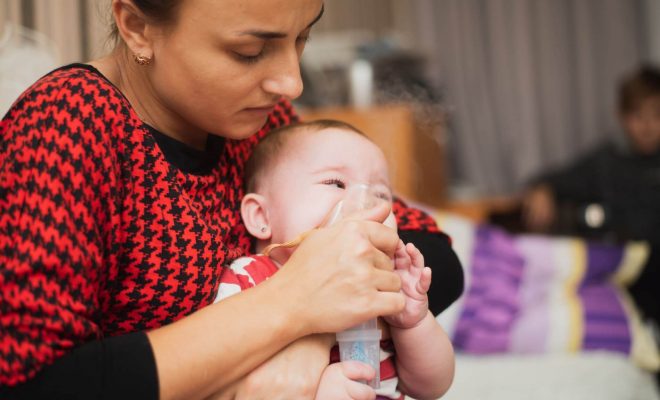To enhance basic research skills that pertain to children’s environmental health, we will strongly encourage early-stage investigators and researchers to enroll in workshops and continuing education courses. Thankfully, the University of Pennsylvania offers many courses and programs open to not only Penn researchers and faculty, but those from other institutions and universities.
Center of Excellence in Environmental Toxicology Workshops
- Principles of Toxicology: Dose-response, NOAEL, LOAEL, Margin of Safety, Principles of Tox 21st Century Exposure Pathways (air and water monitoring). Outdoor air quality, particulate matter size and composition instrumentation and measurements.
- Cartographic Modeling, ArcGIS and Geospatial Analysis of Exposure Data
- Clinical Research/Epidemiology/Statistics. Longitudinal and survival analysis, prognostic and predictive modeling, early-phase clinical trial design and missing data.
- Biomarker Assays, Metabolomics and Heavy Metals. Development of biomarker assays and metabolomic analysis using stable- isotope dilution liquid chromatography tandem mass spectrometry (LC-MS/MS) or UPLC-HRMS, respectively; and use of ICP-MS with ion chromatography to measure heavy metals by valence state.
- Epigenetic analyses: site specific and genome-wide methods of analyzing epigenetic modifications such as DNA methylation, histone modifications, and non-coding RNAs.
- Bioinformatics & Biomedical Informatics, complex adaptive systems, data science, artificial intelligence. analyzing Big-Data.
- Data Management & Sharing. This workshop will emphasize how to create meta-data and emphasize Findable Accessible Interoperable Reusable (FAIR) principles in data access and sharing. It will work with ESI to develop work sheets specific to project need.
- Scientific Rigor and Reproducibility. Topics covered are scientific premise, rigorous experimental design, consideration of sex and other biological variables, authentication of key biological or chemical resources, and transparency in reporting experimental details.
Continuing Education Courses Offered by Penn
Penn has developed very robust continuing education opportunities for research faculty. For those investigators seeking more in-depth knowledge, faculty can use their tuition benefits to receive a:
- MPH (offered through the Center for Public Health Initiatives);
- MTR – Masters of Translational Research (offered through the CTSA);
- MSCE – Master of Science in Clinical Epidemiology, a Certificate Program in Bioinformatics; and
- an MTR in Biomedical Informatics.
ESI’s can also take any of the courses listed below without enrolling in the Master’s Program. This unofficial audit permits ESI’s to attain knowledge in an area without receiving any credits.
The Institute for Translational Medicine and Therapeutics (ITMAT) offers educational programs at the undergraduate and postgraduate levels, organizes an annual international symposium, and sponsors a seminar series and various workshops focusing on emerging topics in translational research. ESIs from other PRCCEH institutions are allowed to enroll in these programs.
Masters in Translational Research (MTR)
The MTR program is available for PhDs and MDs who seek to conduct patient-oriented research. This program has been highly successful and is designed to facilitate training and research from proof of concept in cellular and animal model systems across the translational divide to proof-of concept and clinically relevant areas of investigation in humans. Participant projects and career goals align across this continuum and can be concentrated in the area of CEH. Participants enroll in a core set of courses and also choose an academic pathway to concentrate in a specific area of translational science. The curriculum includes:
MTR 600 – Introductory Biostatistics: This course approaches statistics from an applied as well as theoretical point of view. Participants learn the correct application and interpretation of basic statistical concepts and techniques. The course covers probability estimation, hypothesis testing, nonparametric tests, tests for categorical data, correlation, and regression. Participants are provided with an understanding of statistical methods, skills in the use of software to apply those methods, and the critical thinking to interpret analytic results produced by one’s efforts and/or those of fellow researchers.
MTR 602 – Proposal Development: This course focuses on study design and proposal development as they relate to studies that probe the mechanism of disease. It discusses concepts such as writing a background section, asking a research question, designing a study, use of biomarkers, writing a research proposal, overview of different study designs, and addressing feasibility issues. Development of a thesis proposal starts during this course and concludes with each student submitting and presenting their plan to the MTR faculty panel for critique and feedback. This course is only available for registered Master’s students.
MTR 603 – Disease Measurement Course: Participants acquire the knowledge to incorporate disease measurements rationally and effectively, including emerging technologies, into the design of translational and clinical research protocols. They gain a basic understanding of measurement methodologies used in clinical medicine. Understand how “normal” values are determined, and how to interpret test results in the context of patients/research subjects. They approach disease measurements (tests) as a means of answering questions, and should be able to choose appropriate tests to answer the questions being posed.
MTR 604 – Scientific and Ethical Conduct: Participants learn the foundational principles of scientific and ethical conduct of research, complete directed experience in evaluating these principles through IRB membership, and ultimately be able to apply them to their own work. By the end of the foundational class sessions, students will understand scientific conduct, ethical considerations including human subjects and animal protections; regulations governing the use of protected health information, drugs, and devices; good laboratory practices; conflicts of interest; and ethics in challenging new research domains. The directed experience will include membership for six months on an Institutional Review Board (IRB) at either the University of Pennsylvania or the Children’s Hospital of Philadelphia. This membership experience will expose students to real issues, considerations, and solutions in human subject research and study design.
Master of Science in Clinical Epidemiology (MSCE)
The MSCE offered by the Department of Biostatistics, Epidemiology, and Informatics is an intensive program for clinician-scientists who seek to further their skills as academic investigators. Applicants who possess an advanced degree in medicine, nursing or another health field learn to design controlled epidemiological studies and acquire biostatistical skills that relate directly to their research interests. With close guidance from a primary mentor and a mentorship team, students will gain the ability to hone precise research questions and pursue reliable, complex answers. PRCCEH Co-Director Aimin Chen, PhD, is faculty in the MSCE program and mentors MSCE students for epidemiology and environmental health.
The MSCE is one of the nation’s top offerings in clinical research training with more than 150 active faculty members. It is designed to be completed in two to three years of full-time study and prepares students to:
- Design, implement, and analyze an original research project.
- Master the elements of various research designs—randomized clinical trials, cohort and case-control studies, surveys, and quasi-experiments.
- Learn the concepts of health measurement as they apply to epidemiologic research.
- Apply a sophisticated critical perspective in appraising medical literature.
- Understand the principles of biostatistics, especially as they apply to epidemiologic research.
- Be able to use and interpret various statistical programs for analyzing a data set.
Certificate Program in Environmental Health Sciences
Dr. Trevor Penning, Director of the Center of Excellence in Environmental Toxicology, established a certificate program in environmental health sciences in 2010. All biomedical graduate students and postdoctoral fellows are eligible to take the required course work and can be made available for Early Stage Investigators in children’s environmental health who are not familiar with this material. The goal of the certificate program is to provide course work that links environmental exposure to human disease to train the next generation of environmental health scientists. The course work involves:
GCB 534 –Experimental Genome Science. This course will survey methods and questions in experimental genomics, including next generation sequencing methods, genomic sequencing in humans and model organisms, functional genomics, proteomics, and applications of genomics methods. Students will be expected to review and discuss current literature and to propose new experiments based on material learned in the course.
PHRM 590 –Molecular Toxicology. This course will focus on the molecular mechanisms by which environmental exposures lead to end-organ injury and to diseases of environmental etiology (neurodegenerative and lung diseases, and reproduction and endocrine disruption). Students will learn about modern predictive toxicology to classify toxicants, predict individual susceptibility and response to environmental triggers, and how to develop and validate biomarkers for diseases of environmental etiology. Students are expected to write a term paper on risk assessment on an environmental exposure using available TOXNET information.
EIPID 711 – Environmental Epidemiology is an advanced epidemiology course that addresses epidemiological research methods used to study environmental exposures from air pollution to heavy metals, and from industrial pollutants to consumer product chemicals. Dr. Aimin Chen is teaching this new course that involves multiple Children’s Environmental Health Topics, including lead exposure, air pollution, flame retardants, perfluoroalkyl substances, and chemical mixtures. Case studies in environmental epidemiology will be discussed to provide details of research methods and findings.
PUBH 501 – Introduction to Biostatistics: This course is designed to provide a broad overview of biostatistics methods as well as applications commonly used for public health research. Topics covered include measurement and categorizing variables, use and misuse of descriptive statistics, testing hypotheses, and applying commonly used statistical tests. An emphasis will be placed on the practical application of data to address public health issues, rather than theoretical and mathematical development. Students will learn how to choose and apply statistical tools to data sources, when and how statistical tools can be used to analyze data, and how to interpret others’ quantitative studies. Students will gain experience using online datasets and the STATA statistical software package.
PUBH 503 –Environmental and Occupational Health This course will provide a broad introduction to the scientific basis of occupational and environmental health. Content will address issues in the ambient, occupational and global environments as well as the tools, concepts and methods used in environmental health.
EPID 600 –Data science refers broadly to using statistics and informatics techniques to gain insights from large datasets. Biomedical informatics refers to a range of disciplines that use computational approaches to analyze biomedical data to answer pre-specified questions as well as to discover novel hypotheses. In this course, we will use R and other freely available software to learn fundamental data science applied to a range of biomedical informatics topics, including those making use of health and genomic data. After completing this course, students will be able to retrieve and clean data, perform exploratory analyses, build models to answer scientific questions, and present visually appealing results to accompany data analyses; be familiar with various biomedical data types and resources related to them; and know how to create reproducible and easily shareable results with R and Github.
Certificate in Biomedical Informatics
Dr. Jason Moore at Penn has established a certificate program in biomedical informatics that consists of four courses including an introductory course (EPID 632); a course in data science (EPID600), a course in databases, and a special topics course. This certificate program gives preferential enrollment to investigators in environmental health including CEH.
EPID 632 – Introduction to Biomedical and Health Informatics. This course is offered during the fall semester and is designed to provide a survey of the major topic areas in medical informatics, especially as they apply to clinical research. Through a series of lectures and demonstrations, students will learn about topics such as databases, natural language, clinical information systems, networks, artificial intelligence, and machine learning applications, decision support, imaging and graphics, and the use of computers in education.
MTR 535 – Introduction to Bioinformatics. This course provides a broad overview of bioinformatics and computational biology as applied to biomedical research. A primary objective of the course is to enable students to integrate modern bioinformatics tools into their research activities. Course material is aimed to address biological questions using computational approaches and the analysis of data. Areas include DNA sequence alignment, genetic variation and analysis, motif discovery, study design for high-throughput sequencing, RNA and gene expression, single gene and whole- genome analysis, machine learning, and topics in systems biology. The relevant principles underlying methods used for analysis in these areas will be introduced and discussed at a level appropriate for biologists without a background in computer science. However, a basic primer in programming and operating in a UNIX environment will be presented, and students will also be introduced to Python, R, and tools for reproducible research. This course emphasizes direct, hands-on experience with applications to current biological research problems.
Masters of Translational Research in Biomedical Informatics.
The MTR in Biomedical Informatics aims to train a new generation of translational scientists in informatics approaches. The rapidly expanding field of biomedical informatics defines how we compare and evaluate healthcare data to both understand and introduce improvements to care (biomedical informatics), as well as the use of healthcare data to conduct discovery-based investigation of biological systems (bioinformatics). The goal in introducing the biomedical informatics is to not only produce translational scientists who are collaborators with informaticians, but to empower these scientists to leverage informatics approaches to develop and test their own hypotheses. Masters students take the course work in the Certificate Program in Biomedical Informatics but also take an MTR 999 Lab with a Biomedical Informatics Focus. Masters Students also complete a thesis with an Emphasis on Biomedical Informatics.




